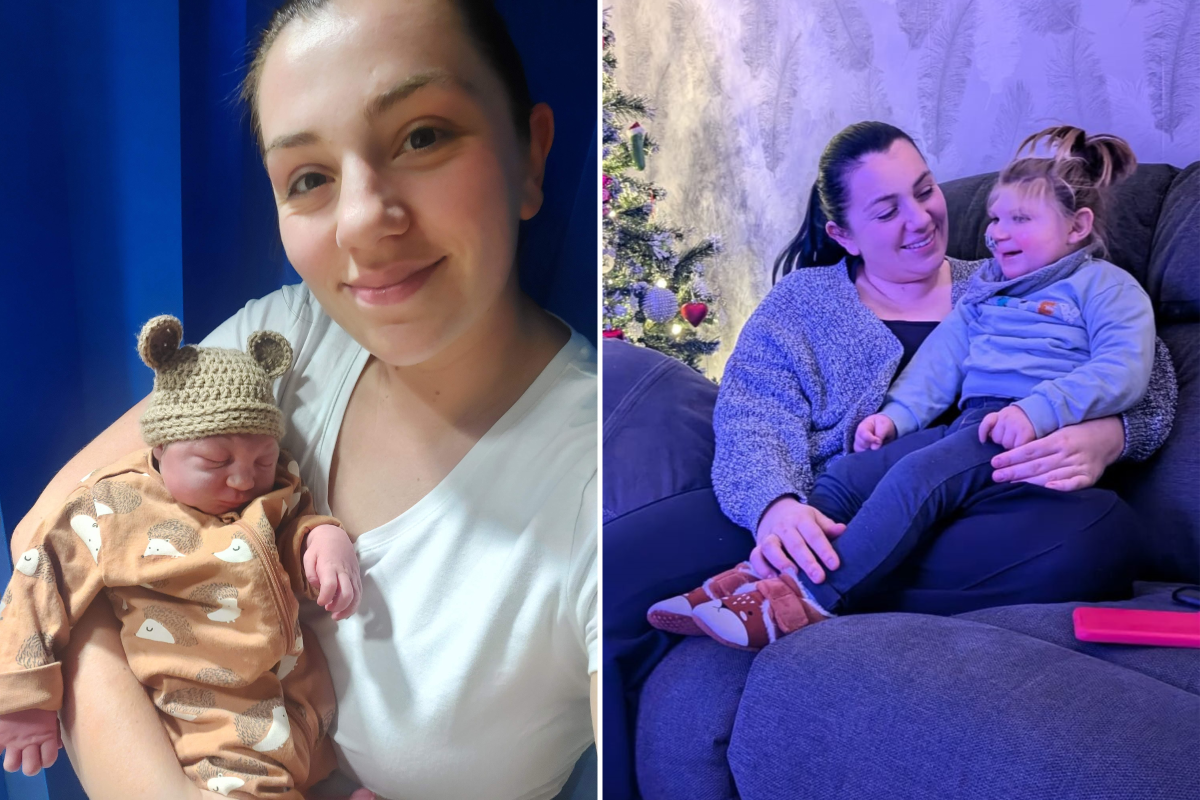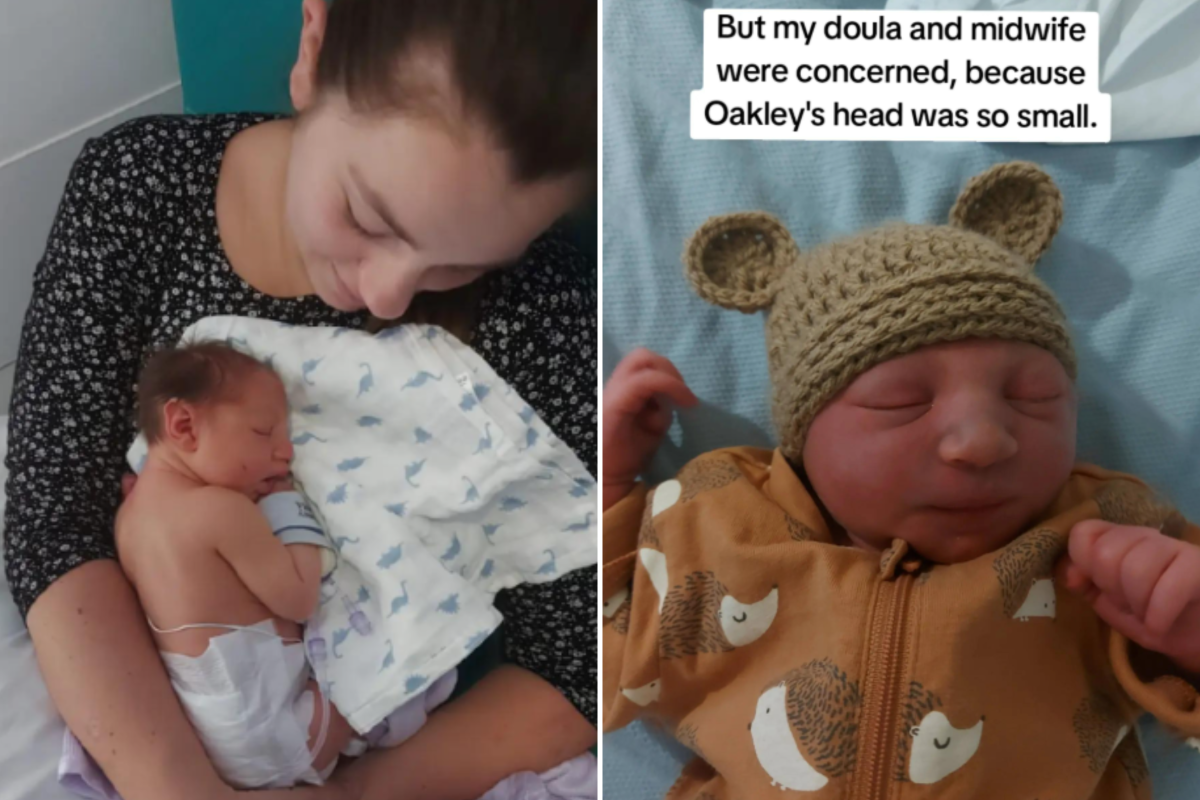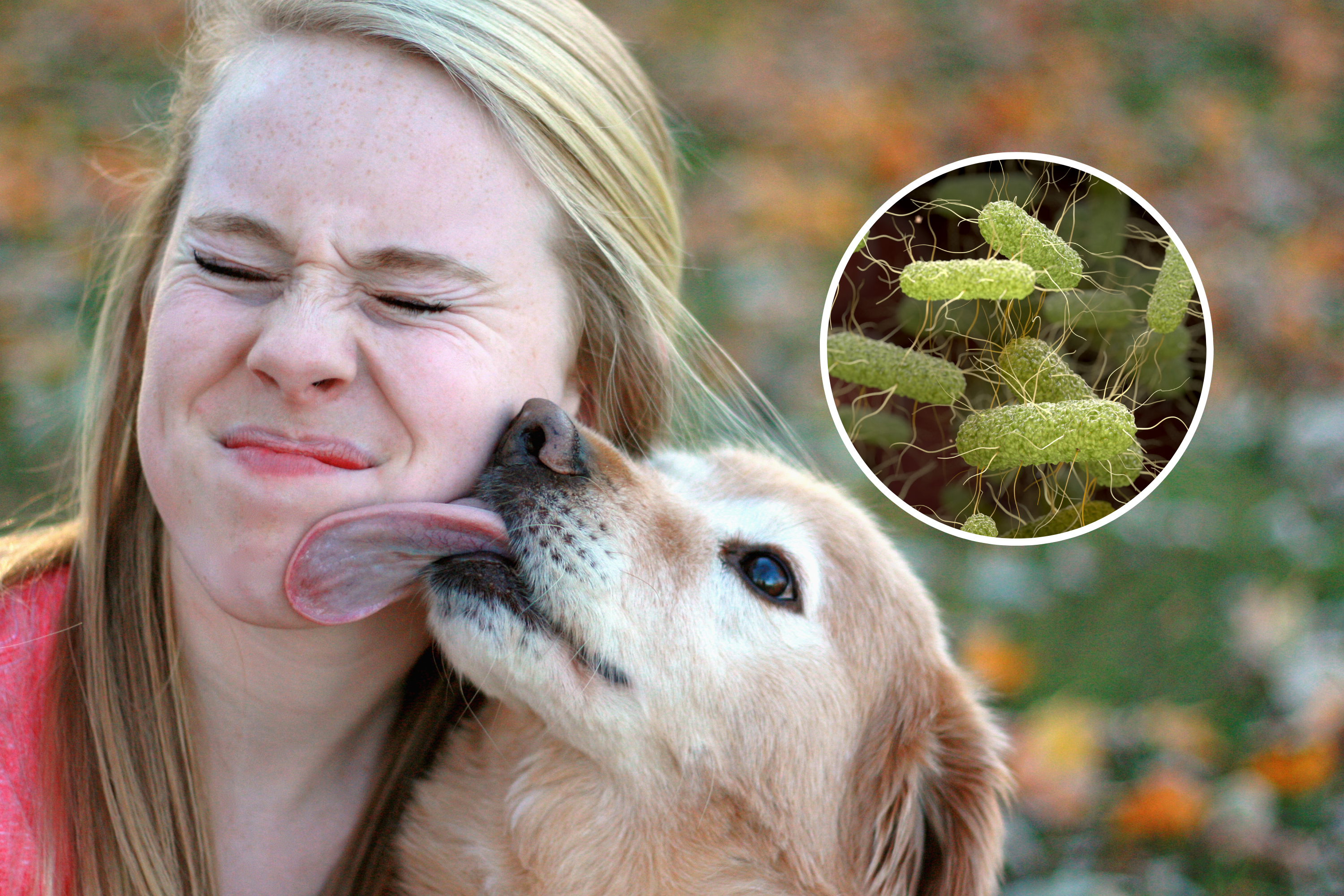A woman who crocheted a tiny hat for her son has revealed why she thinks it was meant to be, and perhaps she knew what the future had in store.
During her pregnancy, Daryl Nicholls, 30, taught herself to crochet before her son, Oakley, arrived. She made him a blanket, some booties, and a matching hat. The hat seemed small, however, and her mom said there was "no way it will fit him."
Just eight days later, Oakley was born on July 23, 2022, weighing just 5lb 7oz. To everyone's amazement, the hat fit him perfectly, and Nicholls, from the U.K., told Newsweek that she believes "it was meant to be."
She said: "I was pleasantly surprised, not realizing the implications of his head being that size at the time. It's only now when I look back that it's obvious that his head was significantly smaller than it should be."

Oakley was born at home, with a midwife and a doula present, and they both noticed his head size immediately. Nicholls says they were incredibly gentle with her when they pointed it out, suggesting she take Oakley to the hospital to get checked.
Still, she had no idea anything could be wrong with Oakley, and it seemed like pure coincidence that his homemade hat fit.
But then Nicholls received a devastating update when her baby was 2 days old.
She said: "We took Oakley to the hospital to meet with the consultant and he did the examination in complete silence. He told us everything was fine, apart from Oakley's head size, and that means there's something wrong with his brain.
"I was completely devastated. In a split second, everything changed. Our hopes, dreams and goals were shattered. A fear for the future was born that day."
Hours after the appointment, Oakley was rushed to hospital as he'd turned yellow and was suffering from jaundice. He had to stay in the NICU (neonatal intensive care unit) for a week, undergoing multiple tests and scans. It was during this time that Nicholls learned that her baby had two life-limiting brain conditions, lissencephaly and microcephaly.
As the National Organization for Rare Disorders explains, lissencephaly is a malformation which makes the brain appear unusually smooth. The condition can cause feeding difficulties, growth failure, diminished muscle tone, and impaired motor abilities.
Infants affected by lissencephaly often have microcephaly, meaning the brain hasn't fully developed. Children with microcephaly usually have differing degrees of intellectual disability, delayed speech and motor ability, short stature, and vision and hearing deficiencies.
It's considered a rare condition that can be a symptom of other disorders, which Johns Hopkins Medicine estimates to affect one in every 800 to 5,000 children in the U.S.

Nicholls said it "absolutely broke [her] heart" to think that she might outlive her son.
Oakley faces significant challenges, because at 2-and-a-half years old, he's non-verbal, cannot sit up unsupported, lacks coordination, can't walk or crawl, and has limited vision. He also relies on a nasogastric tube to consume fluids.
But his mom remains hopeful, and she's even observed many improvements since his birth. His vision has improved, and he's learned to swallow so he can now eat pureed food orally.
Neurosurgeon Dr. Rohan Ramakrishna has told Newsweek that causes of the condition include genetic mutations, prenatal infections, strokes, or exposure to harmful substances during pregnancy. However, he adds that many times, the "cause is unclear."
Ramakrishna is the co-founder and chief medical officer at Roon, offering patients and caregivers advice from healthcare experts.
He said: "While the condition can range in severity, it often leads to developmental delays, intellectual disabilities, and physical challenges. It can affect motor skills, speech, and overall quality of life. For children with severe forms, life expectancy may be reduced."
Having seen patients with microcephaly, what has always stood out to Ramakrishna is the "resilience of families" going through it. In the face of such difficulty, he marvels at how families create so much joy and meaning every day.
Keeping a Piece of Him with Her
Nicholls was left reeling while her son had to stay in the NICU for a week. She'd carried him for nine months, and suddenly she was unable to stay with him in the hospital.
Thankfully though, she had the crocheted hat, which she kept on her person at all times until they were finally reunited.
"It was the only piece of him I had when I couldn't physically be with him," she said. "I would keep it tucked in my top, near my heart, and sleep with it at night. It was a reminder that I would be with him again and to keep going for my little boy. It was also a reminder of his condition, and how precious he it."
She still has the hat, and intends to frame it one day as remains such an important memento.
Raising Awareness on Social Media
Nicholls has documented their journey on social media (@acornupdates on TikTok and Instagram), as she hopes to raise awareness. She's also fundraising through Tree of Hope for Oakley's treatment.
In one post, shared in November 2024, Nicholls suggested that she "didn't accidentally make his hat small," and perhaps part of her knew about his condition all along. The post went viral with more than 950,700 views and 57,400 likes on TikTok.
She doesn't know what life has in store for Oakley, but Nicholls will keep fighting and advocating to give him the life he deserves.
"It's been a really big learning curve, but I've learnt so much in the past couple of years," Nicholls told Newsweek. "If anyone is in a similar position with their child, do not to give up. I absolutely do not have all the answers, but that's OK.
"I devote my time to looking after Oakley, and he will show us what he's capable of. I tell him there's nothing we can't do, and if he believes his potential is limitless, then it is," she said.
Is there a health issue that's worrying you? Let us know via health@newsweek.com. We can ask experts for advice, and your story could be featured on Newsweek.




















 English (US) ·
English (US) ·